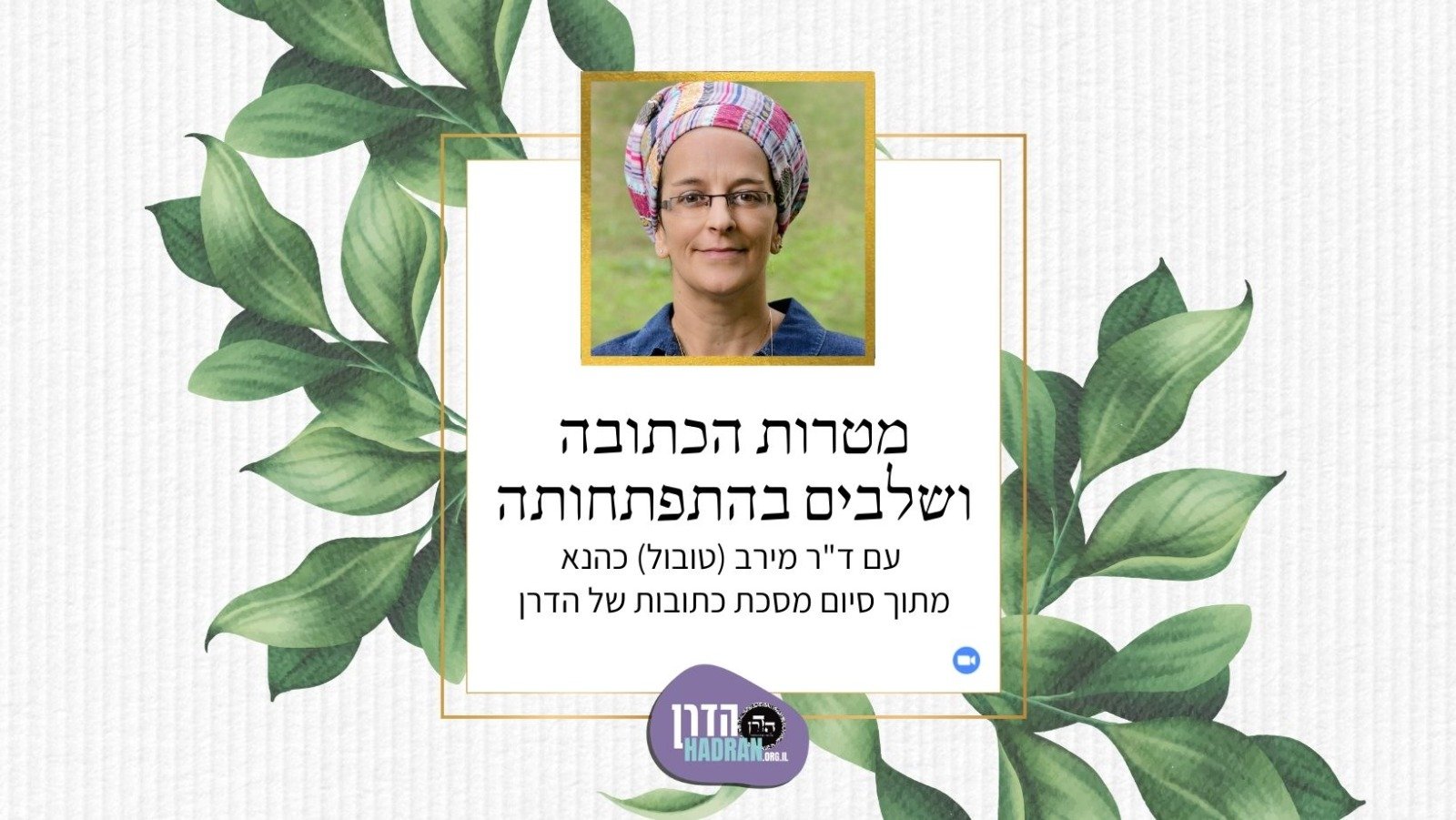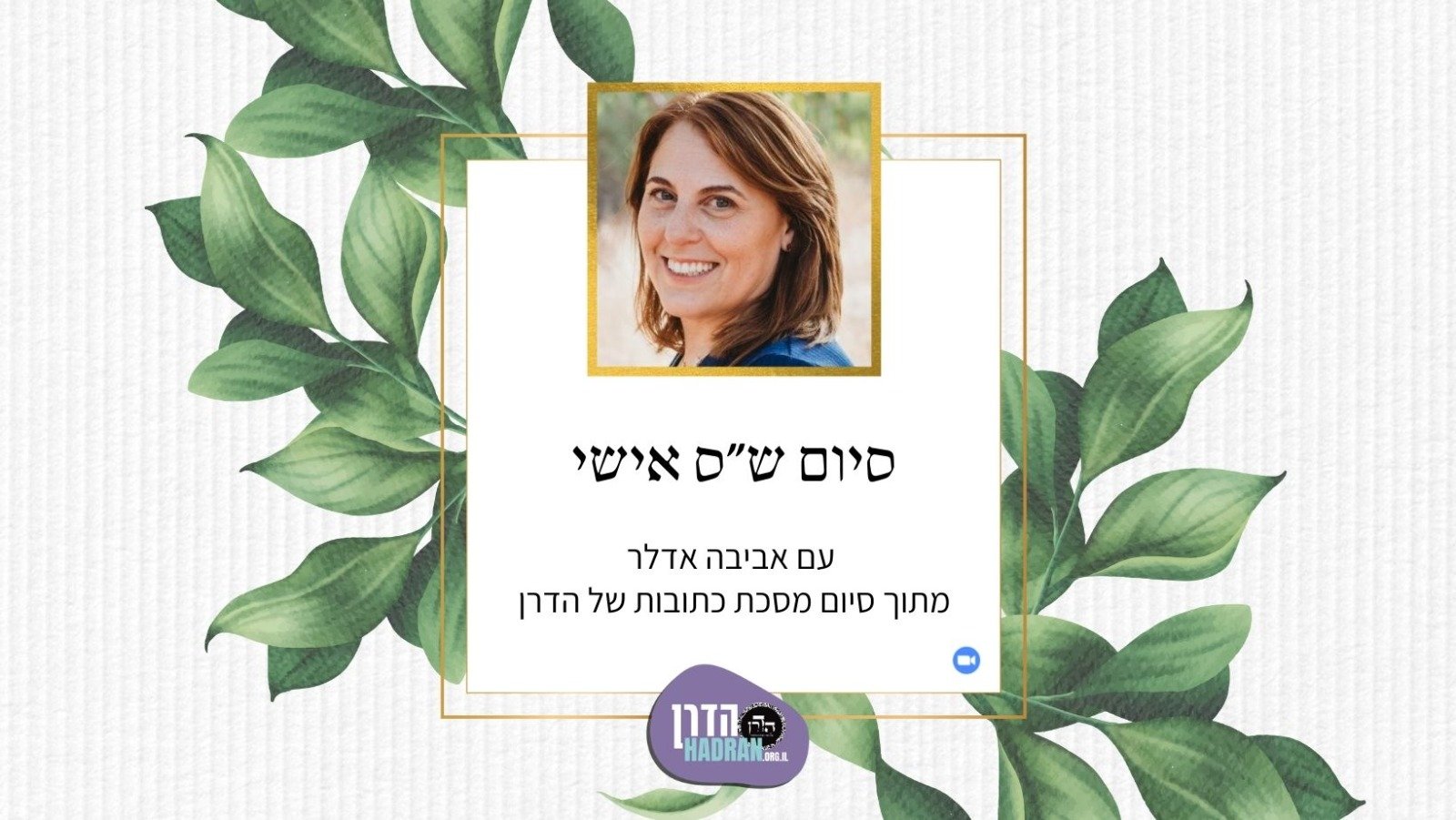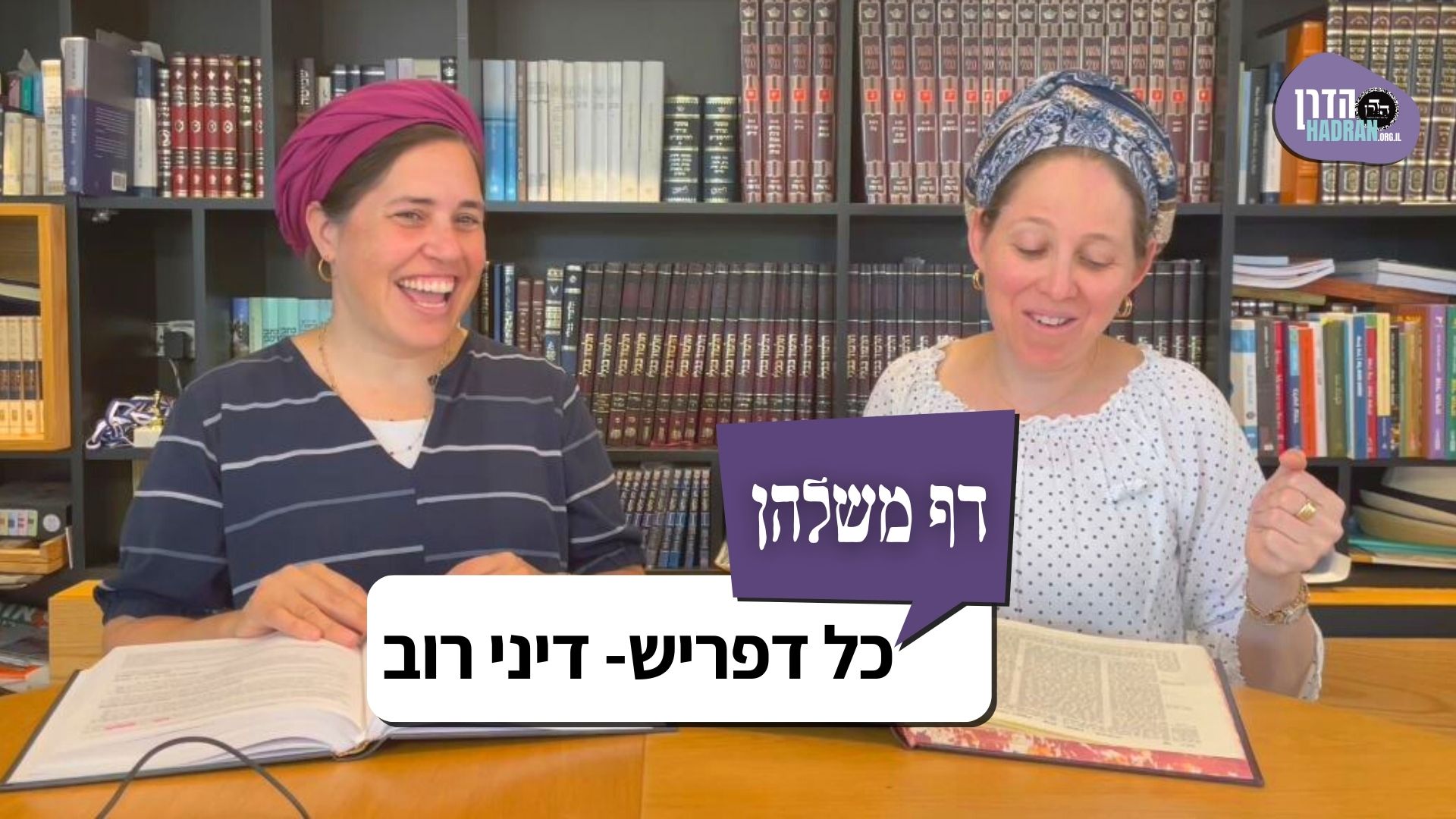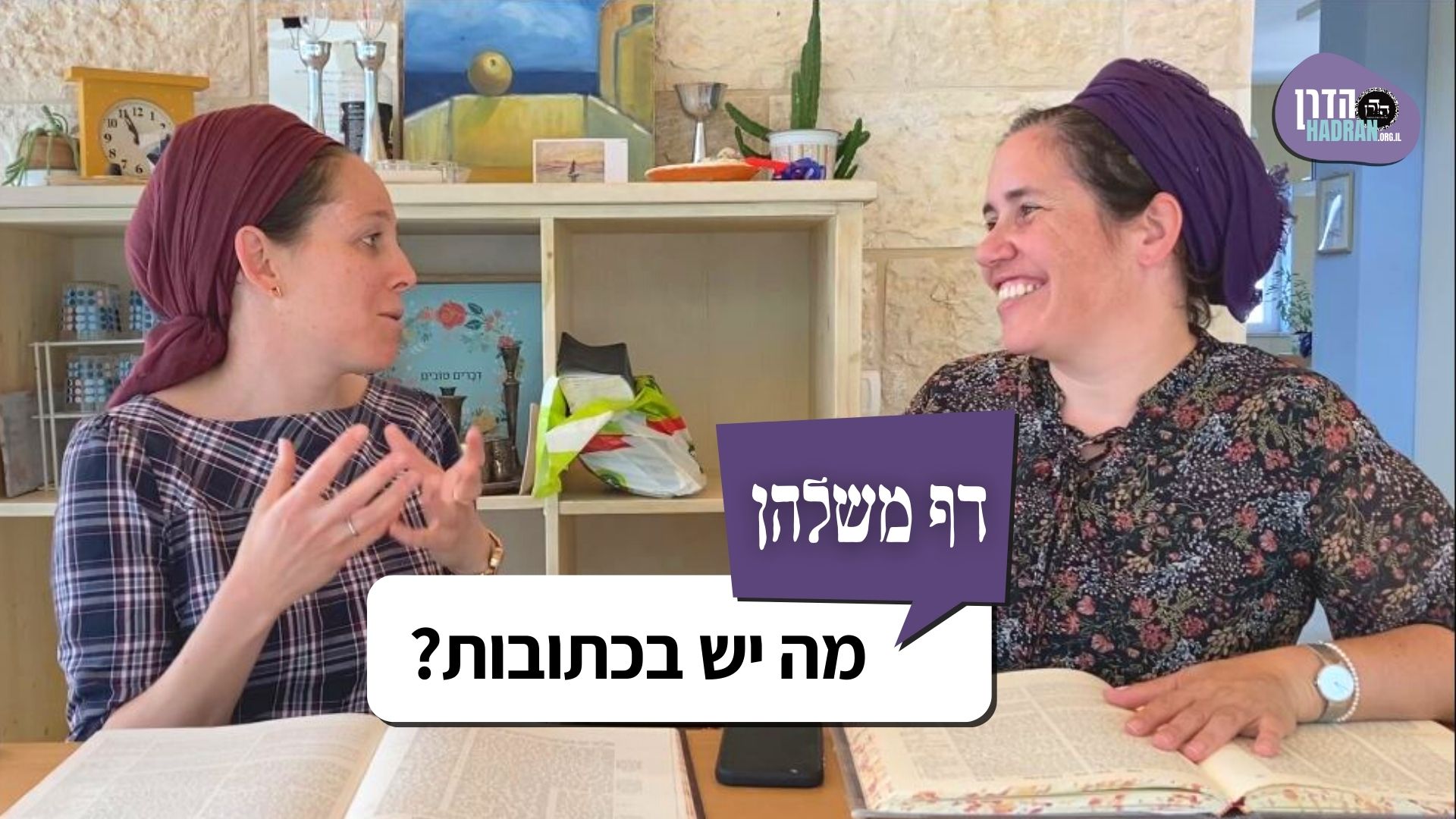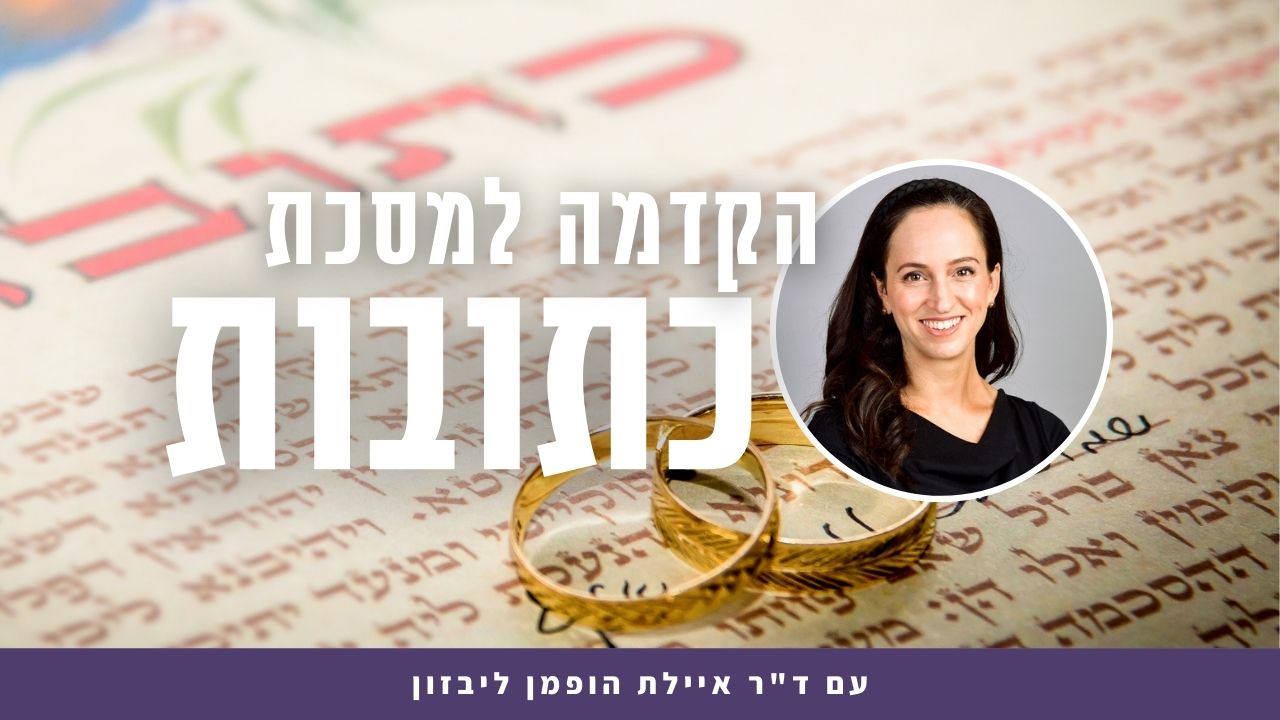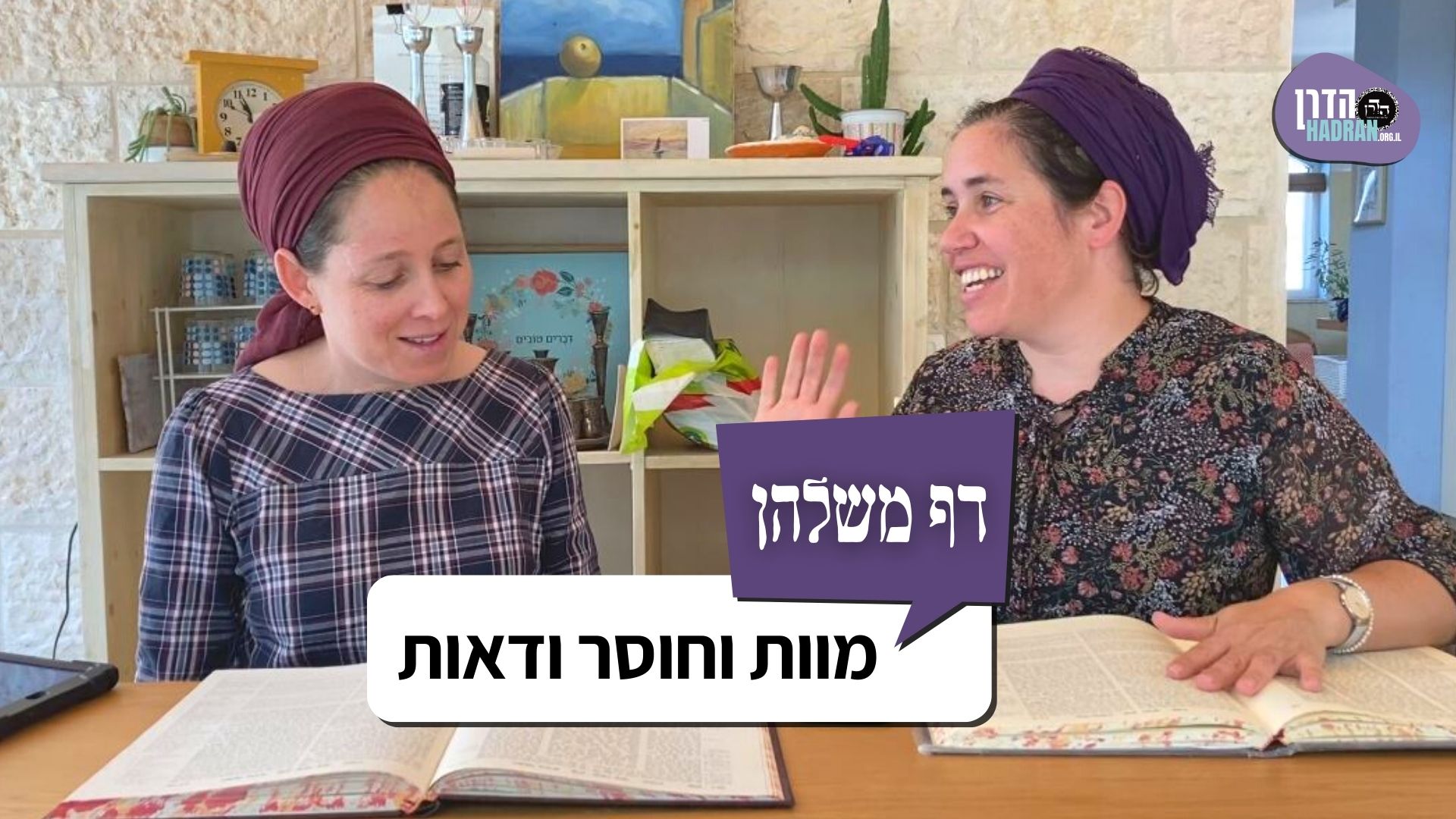כתובות ג
זִימְנִין דְּלָא אֲנִיס וְסָבְרָה דַּאֲנִיס, וּמִיעַגְּנָא וְיָתְבָה. וּמִשּׁוּם פְּרוּצוֹת — דְּאִי אָמְרַתְּ לָא לֶיהֱוֵי גִּיטָּא, זִימְנִין דַּאֲנִיס וְאָמְרָה לָא אֲנִיס, וְאָזְלָא וּמִינַּסְבָא, וְנִמְצָא גֵּט בָּטֵל וּבָנֶיהָ מַמְזֵרִים.
then sometimes, where he was not detained unavoidably but he fulfilled the condition willingly to effect the divorce, and the wife thinks that he was detained unavoidably, she will sit deserted, forever unable to remarry. And the concern due to licentious women is, as, if you said: Let it not be a bill of divorce, then sometimes, when he was detained unavoidably and she thinks that he was not detained unavoidably, she goes and remarries. And the result will be that the bill of divorce is void, and her children from the second marriage will be mamzerim, products of an adulterous relationship.
וּמִי אִיכָּא מִידֵּי דְּמִדְּאוֹרָיְיתָא לָא לֶהֱוֵי גֵּט, וּמִשּׁוּם צְנוּעוֹת וּמִשּׁוּם פְּרוּצוֹת שָׁרִינַן אֵשֶׁת אִישׁ לְעָלְמָא?!
The Gemara questions the following premise: By Torah law, a condition that is unfulfilled due to circumstances beyond one’s control is considered fulfilled, and it is merely by rabbinic ordinance that it is deemed unfulfilled: And is there a matter where by Torah law it is not a bill of divorce, but due to virtuous women and due to licentious women we permit a married woman to others?
אִין, כׇּל דִּמְקַדֵּשׁ אַדַּעְתָּא דְּרַבָּנַן מְקַדֵּשׁ, וְאַפְקְעִינְהוּ רַבָּנַן לְקִידּוּשֵׁי מִינֵּיהּ.
The Gemara answers: Yes, it is within the authority of the Sages to institute an ordinance freeing the woman from the marriage, as anyone who betroths a woman, betroths her contingent upon the agreement of the Sages, and in certain cases, such as those mentioned above, the Sages invalidated his betrothal retroactively.
אֲמַר לֵיהּ רָבִינָא לְרַב אָשֵׁי: תִּינַח קַדֵּישׁ בְּכַסְפָּא. קַדֵּישׁ בְּבִיאָה מַאי אִיכָּא לְמֵימַר? שַׁוְּיוּהּ רַבָּנַן לִבְעִילָתוֹ בְּעִילַת זְנוּת.
Ravina said to Rav Ashi: That works out well if he betrothed her with money, as in that case, the courts could declare the money ownerless, and one cannot betroth a woman with money that is not his. However, if he betrothed her with intercourse, what can be said? Rav Ashi answered: The Sages rendered his intercourse licentious intercourse.
אִיכָּא דְּאָמְרִי: אָמַר רָבָא, וְכֵן לְעִנְיַן גִּיטִּין. אַלְמָא קָסָבַר רָבָא יֵשׁ אוֹנֶס בְּגִיטִּין.
Some say, to the contrary, that Rava said: Just as with regard to postponement of a wedding due to circumstances beyond his control, the groom is not obligated to provide sustenance for his betrothed, the same is true with regard to the matter of bills of divorce. The Gemara concludes that apparently Rava maintains: Unavoidable circumstances have legal standing with regard to bills of divorce.
מֵיתִיבִי: ״הֲרֵי זֶה גִּיטֵּיךְ אִם לֹא בָּאתִי מִכָּאן וְעַד שְׁנֵים עָשָׂר חֹדֶשׁ״, וּמֵת בְּתוֹךְ שְׁנֵים עָשָׂר חֹדֶשׁ — אֵינוֹ גֵּט. מֵת הוּא דְּאֵינוֹ גֵּט, הָא חָלָה — הֲרֵי זֶה גֵּט!
The Gemara raises an objection from a mishna (Gittin 76b): With regard to one who said to his wife: This is your bill of divorce if I do not return from now until the conclusion of twelve months, and he died within those twelve months, the document is not a bill of divorce. The Gemara infers: If he died, that is when it is not a bill of divorce, since a divorce cannot take effect posthumously. However, in cases involving other circumstances beyond his control, e.g., if he fell ill and therefore did not return, it is a bill of divorce and it does take effect.
לְעוֹלָם אֵימָא לָךְ חָלָה נָמֵי אֵינוֹ גֵּט, וְהִיא גּוּפַהּ קָא מַשְׁמַע לַן: דְּאֵין גֵּט לְאַחַר מִיתָה.
The Gemara answers: Actually, I will say to you that in the case where one falls ill it is also not a bill of divorce, and death is merely an example of circumstances beyond one’s control. And the fact that the mishna cited that example itself teaches us that there is no bill of divorce posthumously.
אֵין גֵּט לְאַחַר מִיתָה הָא תְּנָא לֵיהּ רֵישָׁא! דִּלְמָא לְאַפּוֹקֵי מִדְּרַבּוֹתֵינוּ.
The Gemara asks: Does it come to teach that there is no bill of divorce posthumously? Wasn’t it already taught in the first clause of that mishna? The Gemara answers: Perhaps it was necessary for the first clause to mention specifically the case of death, to exclude the opinion of our Rabbis.
תָּא שְׁמַע: ״מֵעַכְשָׁיו אִם לֹא בָּאתִי מִכָּאן וְעַד שְׁנֵים עָשָׂר חֹדֶשׁ״, וּמֵת בְּתוֹךְ שְׁנֵים עָשָׂר חֹדֶשׁ — הֲרֵי זֶה גֵּט. מַאי לָאו, הוּא הַדִּין לְחָלָה! לָא, מֵת דַּוְקָא, דְּלָא נִיחָא לֵיהּ דְּתִפּוֹל קַמֵּי יָבָם.
Come and hear an additional proof from the latter clause of that mishna: If one said: This is your bill of divorce from now if I have not returned from now until the conclusion of twelve months, and he died within those twelve months, then this document is a bill of divorce. What, is it not that the same is true if his failure to return is due to the fact that he fell ill? The Gemara rejects that proof. The divorce takes effect specifically in the case where he died, and he wrote the bill of divorce because he was not amenable to have his wife happen before her yavam, his brother, for levirate marriage if he had no children. However, in cases where that is not a consideration, if other circumstances beyond his control caused the condition to be fulfilled, his intention is that the bill of divorce will not take effect.
תָּא שְׁמַע מֵהָהוּא דַּאֲמַר לְהוּ ״אִי לָא אָתֵינָא מִכָּאן וְעַד שְׁלֹשִׁים יוֹם לֶיהֱוֵי גִּיטָּא״, אֲתָא בְּסוֹף תְּלָתִין יוֹמִין וּפַסְקֵיהּ מַבָּרָא, וַאֲמַר לְהוּ: ״חֲזוֹ דַּאֲתַאי! חֲזוֹ דַּאֲתַאי!״ וַאֲמַר שְׁמוּאֵל: לָא שְׁמֵיהּ מַתְיָא!
Come and hear an additional proof from the case of a certain man who said to the agents with whom he entrusted the bill of divorce: If I do not return from now until thirty days have passed, let this be a bill of divorce. He came at the end of thirty days, before the deadline passed, but was prevented from crossing the river by the ferry that was located on the other side of the river, so he did not come within the designated time. He said to the people across the river: See that I have come, see that I have come. Shmuel said: It is not considered to be a return. Apparently, even if the condition was fulfilled due to circumstances beyond his control, the condition is considered fulfilled.
אוּנְסָא דִּשְׁכִיחַ — שָׁאנֵי, דְּכֵיוָן דְּאִיבְּעִי לֵיהּ לְאַתְנוֹיֵי וְלָא אַתְנִי, אִיהוּ הוּא דְּאַפְסֵיד אַנַּפְשֵׁיהּ.
The Gemara rejects that proof: Perhaps unavoidable circumstances that are common and could be anticipated, e.g., the ferry being located at the other side of the river, are different, since he should have stipulated that exception when giving his wife the bill of divorce. And since he did not stipulate it, he brought the failure upon himself.
אָמַר רַב שְׁמוּאֵל בַּר יִצְחָק: לֹא שָׁנוּ אֶלָּא מִתַּקָּנַת עֶזְרָא וְאֵילָךְ, שֶׁאֵין בָּתֵּי דִינִין קְבוּעִין אֶלָּא בְּשֵׁנִי וּבַחֲמִישִׁי. אֲבָל קוֹדֶם תַּקָּנַת עֶזְרָא, שֶׁבָּתֵּי דִינִין קְבוּעִין בְּכׇל יוֹם — אִשָּׁה נִשֵּׂאת בְּכׇל יוֹם.
§ Rav Shmuel bar Yitzḥak said: The Sages teach that this halakha that a virgin is married on Wednesday is in effect only from the institution of the ordinance of Ezra that courts are in regular session only on Monday and Thursday. However, prior to the institution of the ordinance of Ezra, when courts were in regular session every day, a woman was married on any day of the week.
קוֹדֶם תַּקָּנַת עֶזְרָא? מַאי דַהֲוָה הֲוָה! הָכִי קָאָמַר: אִי אִיכָּא בָּתֵּי דִינִין דִּקְבוּעִין הָאִידָּנָא כְּקוֹדֶם תַּקָּנַת עֶזְרָא — אִשָּׁה נִשֵּׂאת בְּכׇל יוֹם.
The Gemara asks: Prior to the institution of the ordinance of Ezra? What was in the past was in the past. There are no halakhic ramifications to that statement. The Gemara answers: This is what Rav Shmuel bar Yitzḥak is saying: If there are courts in regular daily session today, as they were prior to the institution of the ordinance of Ezra, a woman is married on any day of the week.
הָא בָּעִינַן שָׁקְדוּ! דִּטְרִיחַ לֵיהּ.
The Gemara asks: Don’t we require the additional reason that a virgin is married on Wednesday because the Sages were assiduous in seeing to the well-being of Jewish women and made certain that the groom would have several days to prepare for the wedding feast prior to the wedding? The Gemara answers: This is referring to a case where he already exerted himself and prepared everything before Shabbat, so the feast will be prepared even if the wedding is Sunday or Monday.
מַאי ״שָׁקְדוּ״? דְּתַנְיָא: מִפְּנֵי מָה אָמְרוּ בְּתוּלָה נִשֵּׂאת לַיּוֹם הָרְבִיעִי? שֶׁאִם הָיָה לוֹ טַעֲנַת בְּתוּלִים, הָיָה מַשְׁכִּים לְבֵית דִּין. וְתִנָּשֵׂא בְּאֶחָד בְּשַׁבָּת, וְאִם הָיָה לוֹ טַעֲנַת בְּתוּלִים הָיָה מַשְׁכִּים לְבֵית דִּין! שָׁקְדוּ חֲכָמִים עַל תַּקָּנַת בְּנוֹת יִשְׂרָאֵל, שֶׁיְּהֵא אָדָם טוֹרֵחַ בַּסְּעוּדָה שְׁלֹשָׁה יָמִים: אֶחָד בַּשַּׁבָּת וְשֵׁנִי בְּשַׁבָּת וּשְׁלִישִׁי בַּשַּׁבָּת, וּבָרְבִיעִי כּוֹנְסָהּ.
The Gemara asks: What is the meaning of: The Sages were assiduous? It is as it is taught in a baraita: Due to what reason did the Sages in the mishna say that a virgin is married on Wednesday? It is so that if the husband had a claim concerning the bride’s virginity, he would go early the next day to court and make his claim. The baraita continues: But if that is the reason, let her marry on Sunday, as then too, if the husband had a claim concerning the bride’s virginity, he would go early the next day to court and make his claim. The Gemara answers: The Sages were assiduous in seeing to the well-being of Jewish women and preferred Wednesday, so that the husband would exert himself in arranging the wedding feast for three days, Sunday, Monday and Tuesday, and on Wednesday, he marries her.
וּמִסַּכָּנָה וְאֵילָךְ נָהֲגוּ הָעָם לִכְנוֹס בַּשְּׁלִישִׁי, וְלֹא מִיחוּ בְּיָדָם חֲכָמִים. וּבַשֵּׁנִי לֹא יִכְנוֹס. וְאִם מֵחֲמַת הָאוֹנֶס — מוּתָּר. וּמַפְרִישִׁין אֶת הֶחָתָן מִן הַכַּלָּה לֵילֵי שַׁבָּת תְּחִלָּה, מִפְּנֵי שֶׁהוּא עוֹשֶׂה חַבּוּרָה.
The baraita continues: And from the time of danger and onward, the people adopted the custom to marry on Tuesday as well, and the Sages did not reprimand them. And on Monday one may not marry even in time of danger. However, if it is due to the coercion, it is permitted. The baraita concludes: One isolates the groom from the virgin bride, so that he will not engage in intercourse with her for the first time on Shabbat evening, because by rupturing the hymen he inflicts a wound, which is a labor prohibited on Shabbat.
מַאי סַכָּנָה? אִילֵּימָא דְּאָמְרִי בְּתוּלָה הַנִּשֵּׂאת לַיּוֹם הָרְבִיעִי תֵּיהָרֵג — נָהֲגוּ?! לִגְמָרֵי נִיעְקְרֵיהּ!
The Gemara elaborates: What is the danger mentioned in the baraita? If we say it is referring to a situation where the government said that a virgin who is married on Wednesday will be executed, would the response be merely that they adopted the custom to marry on Tuesday? Let them totally abolish the ordinance to marry on Wednesday in the face of life-threatening danger.
אָמַר רַבָּה, דְּאָמְרִי: בְּתוּלָה הַנִּשֵּׂאת בְּיוֹם הָרְבִיעִי תִּיבָּעֵל לַהֶגְמוֹן תְּחִלָּה. הַאי סַכָּנָה? אוֹנֶס הוּא! מִשּׁוּם דְּאִיכָּא צְנוּעוֹת דְּמָסְרָן נַפְשַׁיְיהוּ לִקְטָלָא, וְאָתְיָין לִידֵי סַכָּנָה.
Rabba said: The baraita is referring to a period where the government said that a virgin who is married on Wednesday will submit to intercourse with the prefect [hegmon] first. The Gemara questions the formulation of the baraita: Is that characterized as danger? It is coercion. The Gemara answers: There is also danger involved, as there are virtuous women who give their lives rather than allow themselves to be violated, and they will come to mortal danger.
וְלִידְרוֹשׁ לְהוּ דְּאוֹנֶס שְׁרֵי? אִיכָּא פְּרוּצוֹת, וְאִיכָּא נָמֵי כֹּהֲנוֹת.
The Gemara asks: And if so, let the Sages instruct these women that in cases of coercion it is permitted to submit to violation rather than sacrifice their lives, and they will not be forbidden to their husbands. The Gemara answers: The Sages cannot issue an instruction of that sort, because there are licentious women who would exploit the situation to engage in intercourse willingly, rendering them forbidden to their husbands. And furthermore, there are also women married to priests, who are rendered forbidden to their husbands even if they are raped.
וְלִיעְקְרֵיהּ! שְׁמָדָא עֲבִידָא דְּבָטְלָא, וְתַקַּנְתָּא דְרַבָּנַן מִקַּמֵּי שְׁמָדָא לָא עָקְרִינַן. אִי הָכִי, בַּשְּׁלִישִׁי נָמֵי אָתֵי וּבָעֵיל! מִסְּפֵיקָא לָא עָקַר נַפְשֵׁיהּ.
The Gemara asks: And let the Sages completely abolish the ordinance to marry on Wednesday and establish marriage on a different day. The Gemara answers: A decree of religious persecution [shemada] is likely to be abrogated, and we do not abolish a rabbinic ordinance in the face of a decree of religious persecution. Rather, a lenient ruling is issued instructing them not to follow the ordinance, as long as the decree of persecution is in effect. The Gemara asks: If so, what is accomplished by moving the marriage to Tuesday? The prefect will come on Tuesday too, to violate them. The Gemara answers: The date of the marriage is not fixed, and for a situation of uncertainty the prefect will not uproot himself to violate the bride.
וּבַשֵּׁנִי לֹא יִכְנוֹס, וְאִם מֵחֲמַת הָאוֹנֶס — מוּתָּר. מַאי אוֹנֶס? אִילֵּימָא הָא דַּאֲמַרַן, הָתָם קָרֵי לֵיהּ ״סַכָּנָה״, וְהָכָא קָא קָרֵי לֵיהּ ״אוֹנֶס״?! וְתוּ: הָתָם נָהֲגוּ, הָכָא מוּתָּר?
The baraita continues: And on Monday one may not marry even in time of danger. However, if it is due to the coercion, it is permitted. The Gemara asks: What is the coercion mentioned in the baraita? If we say it is referring to that which we mentioned with regard to the decree of prima nocta it is difficult, as there the tanna calls it danger, and here he calls it coercion. Furthermore, there it says that they adopted the custom to marry on Tuesday; here it states that it is permitted.
אָמַר רָבָא, דְּאָמְרִי: שַׂר צָבָא בָּא לָעִיר. הֵיכִי דָמֵי? אִי דְּאָתֵי וְחָלֵיף — לִיעַכַּב! לָא צְרִיכָא, דְּאָתֵי וְקָבַע. בַּשְּׁלִישִׁי מִיהָא לִכְנוֹס? אִסְפַּרְווֹא דִידֵיהּ בִּשְׁלִישִׁי קָאָתוּ.
Rava said: Coercion refers to a case where they said: A general and his army are coming to the city on Wednesday, and the concern is that the troops will appropriate the supplies for the feast. What are the circumstances? If it is a situation where the general comes and passes through, let them postpone the wedding until the following week. Rather, it is necessary to teach the halakha with regard to the general only in a case where he comes and establishes himself there. The Gemara asks: In any case, let one marry on Tuesday. Why does the baraita permit marrying on Monday? The Gemara answers: It was necessary to move the wedding to Monday because his entourage [asperava] arrives on Tuesday.
וְאִיבָּעֵית אֵימָא: מַאי ״מֵחֲמַת הָאוֹנֶס״ — כִּדְתַנְיָא: הֲרֵי שֶׁהָיָה פִּתּוֹ אָפוּי, וְטִבְחוֹ טָבוּחַ, וְיֵינוֹ מָזוּג, וּמֵת אָבִיו שֶׁל חָתָן אוֹ אִמָּהּ שֶׁל כַּלָּה — מַכְנִיסִין אֶת הַמֵּת לַחֶדֶר, וְאֶת הֶחָתָן וְאֶת הַכַּלָּה לַחוּפָּה,
And if you wish, say instead: What is the meaning of: Due to the coercion? It is as it is taught in a baraita: If one’s bread was baked, and his animal slaughtered, and his wine diluted, and all preparations for the wedding feast were complete, and the father of the groom or the mother of the bride died before the wedding, then before burying the deceased, which would trigger the onset of mourning, one moves the corpse into a room, and the bride and groom are ushered to the wedding canopy and they are married.



